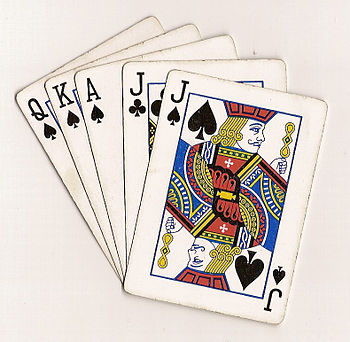
Fairness is a fundamental concept. It is the right and just way for people to treat each other in light of the facts and the law governing them. Understanding fairness and how it operates can be a key to resolving disputes. Consider these five points about fairness.
- Fairness is a basic value in our society.
We teach our children at a young age to “play fair” and by that we mean to follow the rules of the game and not cheat. They develop a deep sense of fairness that goes beyond their games, for one of their common complaints is “That’s not fair!” Knute Rockne, of Notre Dame football fame, told his teams “Win or lose, do it fairly.” In the legal world, Supreme Court Justice Potter Stewart summed it up this way: “Fairness is what justice really is.” And of course we have the Golden Rule in Matthew 7:12: “So in everything, do to others what you would have them do to you, for this sums up the Law and the Prophets.” One short phrase that sums up hundreds of pages of the Law and the Prophets—is it any wonder fairness has become a basic value for us?
- Life’s not fair.
On the other hand, life isn’t fair. From the very start, the circumstances of one’s birth affect so much about a person’s life, like their health, wealth, opportunity and freedom. And the twists and turns of life affect people very differently. How many of us have explained to our children that life isn’t fair in response to their complaint about some unfortunate event? Calvin, of the Calvin and Hobbes cartoon, had a classic response when his dad told him that the world isn’t fair: “I know, but why isn’t it ever unfair in my favor?” Life can sometimes seem that way.
- Even though life’s not fair, the way we treat each other should be.
Fairness involves people treating other people in ways that are right and just despite life’s inherent unfairness. While there is much about life’s circumstances that we can’t control, each of us can control how we treat other people. Perhaps it is life’s inherent unfairness that makes our own fairness seem all the more important to us.
- Fairness involves others as well as yourself.
Anything is fair only if it treats all the parties involved fairly. It’s a multi-party concept. I’ve seen people argue for a proposed resolution “because it would be fair to me.” But by its very nature, if something isn’t fair to everyone involved, then it isn’t fair.
- Most people consider themselves to be fair.
With fairness being such a basic value in our society, the vast majority of people see themselves as being fair-minded. In my recent non-scientific survey, over 90% of people responding said they would try to resolve their own dispute in a way that was fair to both parties. Only about 5% said they would try to get a resolution that was unfair to their advantage. As Atticus Finch said in To Kill a Mockingbird, “I’ve got to live with myself. The one thing that doesn’t abide by majority rule is a person’s conscience.” Some people do seem to take satisfaction in obtaining an unfair advantage over another person. But most people, by far, would be uncomfortable with themselves if they realized they were being unfair in how they were treating another person. Their character for fairness is an important part of their self-image.
And that can be a key to resolving many disputes. If you are trying to get a fair resolution of your dispute, it can be an effective strategy to appeal to the other person’s belief that they are a fair person. Of course, what seems fair to one person can be very subjective and often quite biased, and the same goes for the other party as well. So it can be a real challenge to get to a similar understanding of what would be a fair resolution. But don’t let that cause you not to play the fairness card in working through your dispute. If played well it can be a direct link to your adversary’s psyche, and could foster their move away from an unfair position.
Caution: To be effective the fairness card needs to be played carefully and respectfully, and if done poorly it can backfire on you.
Hint: It does not involve exclaiming “That’s not fair!” and throwing a tantrum.
